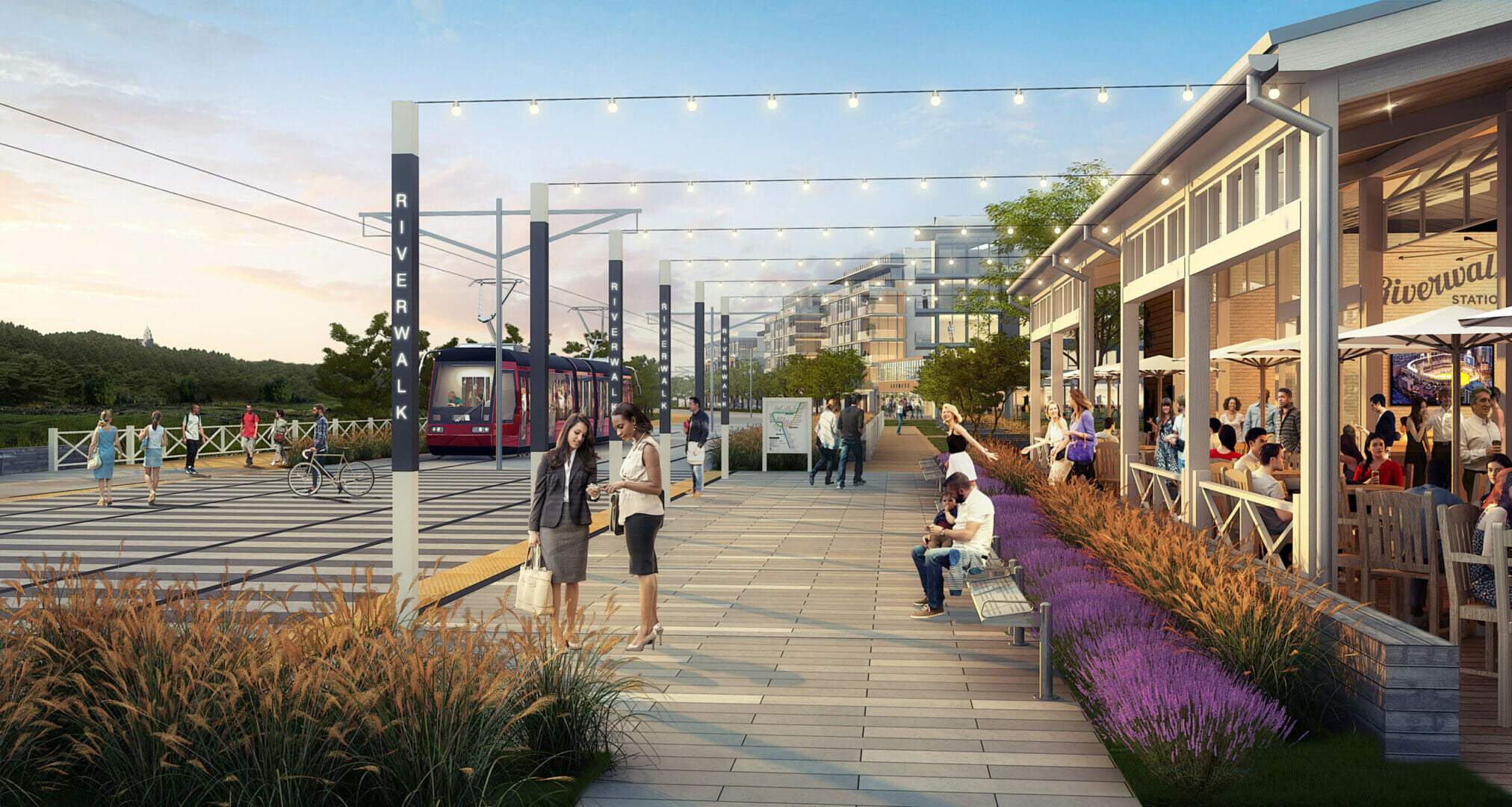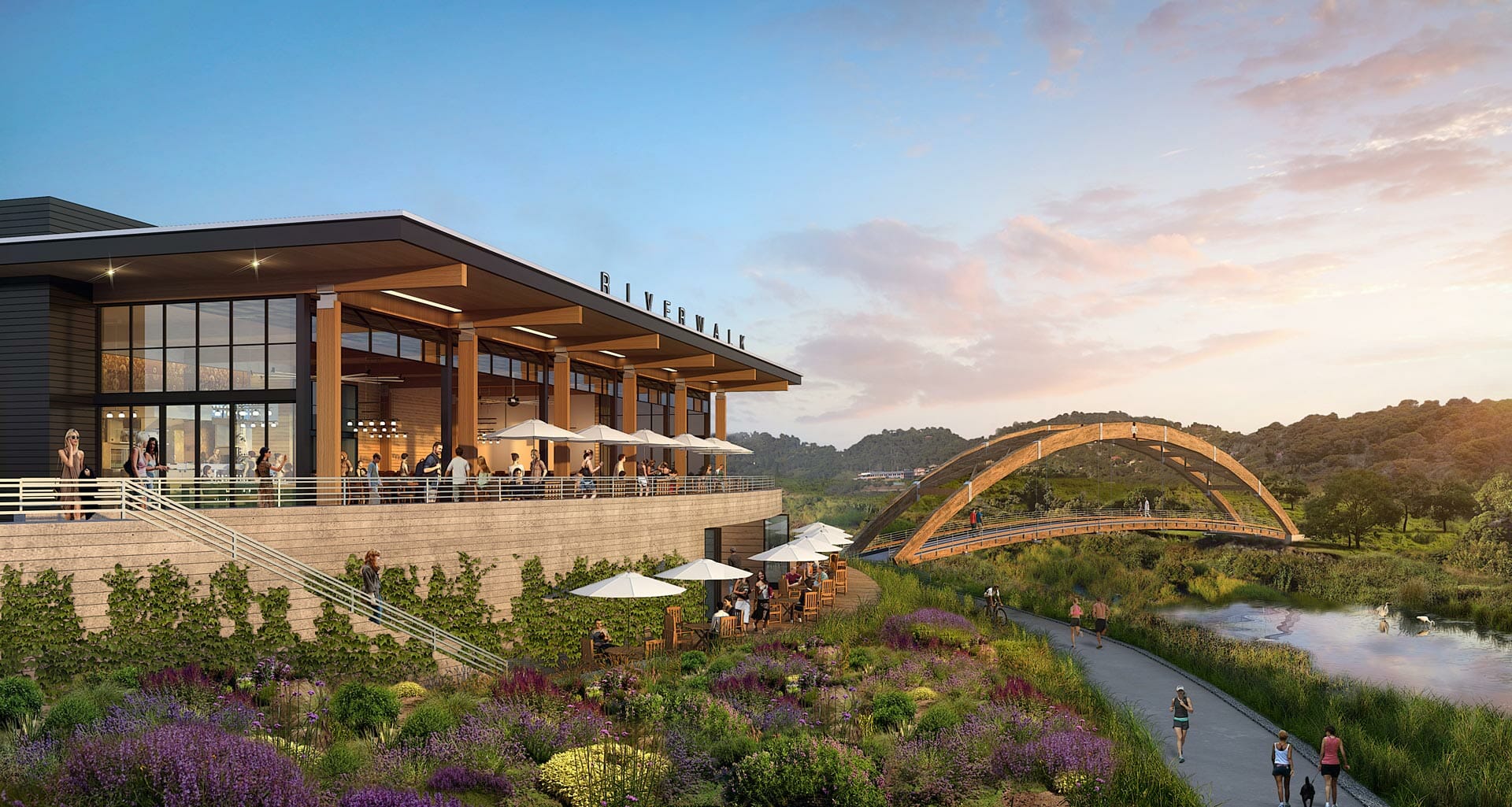The plan to remake the Riverwalk Golf Club into a mixed-use development and river park area was put into more focus at a Jan. 30 public workshop hosted by developer and co-owner of the property, Hines.
“So we want to create a neighborhood, ultimately, that has a mix of housing, including senior and affordable; that has shops that serve our daily needs; that has options to get around —whether trolley or bicycle or walking; and also create new office space for a blank campus opportunity for companies to relocate to San Diego, or for businesses and institutions to expand,” said Hines development director Bhavesh Parikh.
The workshop was the third put on by Riverwalk developers. Earlier workshops focused on public input for all aspects of the project and a special workshop focused on the proposed river park area, which will be about 40 percent of the square footage of the project.
In addition to the park, the current plan calls for 4,300 housing units, retail space and an office business center.
While Hines gathers public input for the Riverwalk project through the public workshops, its website and local planning groups, it has also begun the process of getting city approval. This month, Hines will send a full proposal to the city and in March a public scoping meeting for the project’s Environmental Impact Report will be held.
This is not the first time a proposal for developing Riverwalk has gone through the city process. Developing Riverwalk has been on the books since a previous plan was approved in the 1980s.
“Essentially what [the already approved plan] is, it’s a lot of square footage of residential buildings, office buildings, hotel, retail — not a lot of continuous open space areas,” Parikh said. “It’s also very disruptive to the San Diego River.”
So, Hines set out to take a different approach to the property that would restore the San Diego River and create natural habitat; add needed housing; create a walkable environment; be compliant with the goals of the city’s Climate Action Plan; and encourage mass transit.
To encourage mass transit use, Riverwalk is going to build a trolley stop for the Green Line that runs through the property. The trolley stop, as an entrance to Riverwalk and the center of the retail area, was a major focus of the design team.
“We don’t want it to be an ordinary transit station,” Parikh said. “We want people to use it. So we went back in time and looked at what are some of the historical train stations that existed in San Diego.”
The design team looked at old train stations in Encinitas and Oceanside for inspiration and added amenities like food and beverage options, places to sit, ticket kiosks, and a platform that connects to the park.
“You walk through that station and that takes you to an area where you have access to the shops and restaurants,” Parikh continued.
The most recent design for Riverwalk’s retail area has brick buildings with an “authentic look and character,” Parikh said, because of input gathered at the first workshop. Retail shops will be located below balconies of residences. “You have that public-private interaction that really creates this energetic type of environment,” he continued.
Other design elements of the project include using metal and glass for office spaces, open spaces within the development and around it, and differentiating architecture that still compliments neighboring developments.
“We don’t want to see all the same building, all the same height, all the same setback off the street,” Parikh said. “We don’t want this model of building after building after building. So we started to take an approach to that.”
Mobility in and around the development is addressed with pedestrian paths, share roads for bicyclists, wider sidewalks, and walkways connecting nearby developments and Fashion Valley Mall.
Although the project is encouraging mass transit over cars, Parikh said there was concern about potential parking issues.
“We heard from a number of people about parking and making sure we have adequate parking,” he said. “In the extent that we don’t, people are going to park in our communities; they’re going to park on our streets and we don’t want that.”
Homelessness along the river is another area of concern that people brought up at the workshop.
“We have a golf course now and a large part of the golf course is going to be converted to a park area, so there is certainly the potential that the homeless population could increase in that area over time,” Parikh said.
Riverwalk has hired a person for its team to specifically work on how they might address the issue. One idea is to create a business improvement district to fund programs that would deal specifically with homeless camps.
“We’re working on a proactive approach to address what is it we can do here at Riverwalk and what we can do to reach out to the community of Mission Valley in terms of other property owners and other stakeholders along the river and create a holistic approach [to homelessness] as opposed to an isolated approach at Riverwalk,” Parikh said.
For more information on Riverwalk, visit riverwalksd.com. To offer comment on the project through an online workshop, visit ime.migwebtech.com/index.php/survey/index/sid/975146/lang/en.
Reach Jeff Clemetson at jeff@sdcnn.com.



